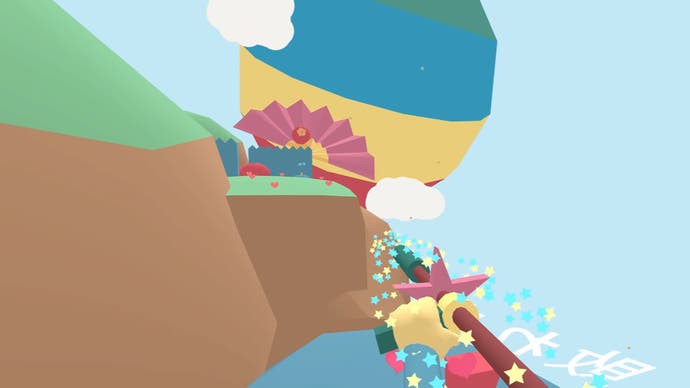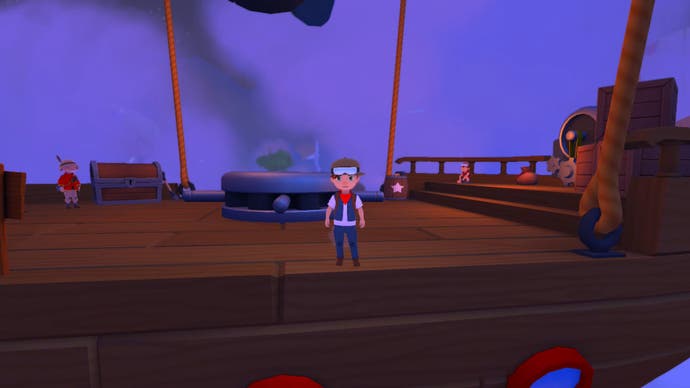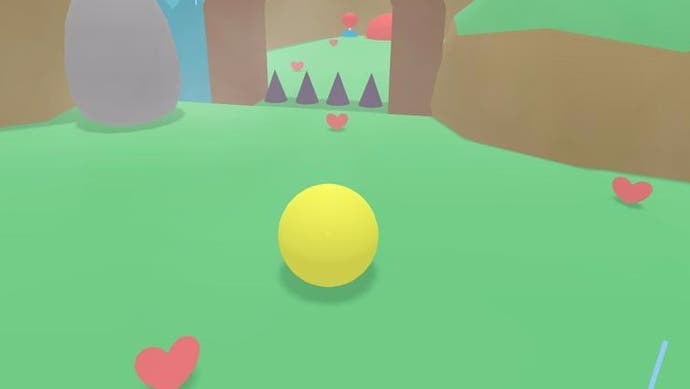Lovely Planet and the joy of frustration
Things are never quite what they seem.
Jerks, that's what they are, plain and simple. I'm talking about the cube-shaped villains that populate the vivid world in Lovely Planet, a speed-running game that's haunted me ever since I purchased it in a Humble Bundle over three and a half years ago. Yet for some reason, I decided to buy it again a few months back, this time for the Xbox.
Playing difficult games for the sake of being frustrated is nothing new, even in recent years as we all secretly agree games are much easier than they used to be. For example, something that's always struck me about Dark Souls, apart from the mystifying acclaim lauded on the series, is the enjoyment people share regarding its difficulty. The repetitive "YOU DIED" dissolving onto the screen when you're beaten by an enemy has become a great meme, prompting the kind of feelings you might experience through cold rejections from a potential employer or an unrequited crush.
Lovely Planet is that stuff too. There isn't much of a story to the thing, but it appears that you've missed your trip to the lovely planet and have to get past all of the enemies and obstacles to make the next flight to that wonderful new world spinning in the background. And don't be fooled by the cheery soundtrack. (Personally, I would compare it to the work of Lullatone, a delightful musical duo who are the embodiment of "quirky".) There are many ways to die: you can succumb to the bastard cubes that spit bullets towards you, or a descending apple that forces you to restart the level, or you might simply lose your footing and fall off one of the numerous platforms.

And there is a lesson here. Like most useless gamers, I'll often use YouTube tutorials and walkthroughs to guide me through difficult sections (or entire games), but time has taught me to become the bigger man and accept my deep flaws and inability to complete certain titles, especially speed-running titles where genuine skill is required. The only way to become a speed-running freak with insane flexes is by plunging hours and hours into the void.
Just look at Devil Daggers. It's designed as an old-school 3D shooter, except you're tasked with defeating ever-increasing hordes of freakish monsters, shooting knives from your fingers, as you try and stay on the tiny, floating platform. I've only ever survived approximately 90 seconds, while a recent world record has just crossed the 18 minute mark. In my defence, I find the sounds produced by the game too creepy to endure.
Some games like this will always remain beyond reach, and we each have at least one or two that we've never been able to push through. To this day I'm still not sure if I've ever completed more than two levels of Super Ghouls 'n Ghosts, a game first released in the early 90s. And it's not that I haven't tried.

Nearly a decade ago, a BBC Horizon documentary dove into the mysterious world of dreams. At one point, they followed Professor Robert Stickgold of Harvard University, a sleep researcher. He made one of his subjects play a skiiing game, asking about the subject's technique and how he was trying to improve. But during REM sleep, the subject was asked what they were dreaming about, and it was revealed that this was the point at which they were actually learning from their mistakes in the game and consolidating the things they had learned.
I can't recall ever dreaming about a game or anything related to something I've played, if I can ever recall a dream in the first place. And despite putting numerous hours into Lovely Planet, even during the summer on some days when I was fasting and had lactic acid cramping my hands to levels of pure pain (thank you, biology degree), achieving the end will possibly only ever arrive if I'm hired to make a documentary about games with the help of a psychiatrist.
Until then, we shouldn't feel bad for giving up so easily. These evenings, after a full day of staring at a blank Word document, I find myself playing the comfortable Poi instead of Lovely Planet. Poi is styled like games of yesteryear, and it fulfils the cliches of jumping around to collect gold coins in colourful worlds. Perhaps the peaceful presence of these two types of gaming extremes are a reaction to the greater stress we're continuously subjected to by society in our professional lives. Maybe that colourful world is what I'll dream about tonight - about being an optimistic explorer on an airship. So long as I'm not too sleep-deprived.

